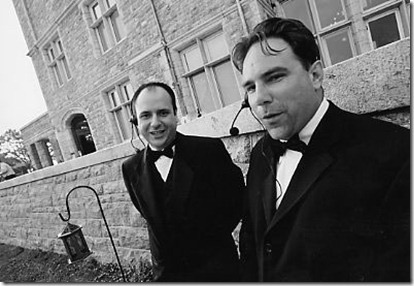A friend recently said to me, “If you choose to believe in God, at least you get to believe in heaven.”
What I strange thing to say, I thought.
If I choose to believe?
I certainly agree with the second part of his statement. If I believed in God, then yes, I could believe in heaven, and that would be a glorious thing. To believe with absolute certainty that there is an afterlife – that I will see my deceased loved ones once again and exist for all eternity – would be amazing.
It would be less amazing, of course, if that belief was accompanied by things like bigotry toward the LGBTQ+ community, but if I believed in God and was not saddled with the indecency, hate, and stupidity that saddles many believers, then yes, believing in God would be great.
I would love to believe.
But choose to believe? How does one choose to believe?
I attended Sunday school as a child. I’ve read The Bible cover to cover three times. I spent more than a year living with a family of Jehovah’s Witnesses. I’ve searched my heart and mind for faith in a higher power for decades. I’ve tried like hell to believe in something beyond the confines of this physical world, but I simply cannot. At least not yet. Logic, reason, science, and common sense have all prevented me from finding the faith that I seek.
So how does one choose to believe? I suppose that I could just say I believe, but saying I believe and choosing to believe are very different things. If there really is an all-knowing God, wouldn’t he (or she) know that I was faking it? Saying something I didn’t believe in order to be rewarded? Failing the test of faith?
French philosopher and physicist Blaise Pascal argued that a rational person should live as though God exists and seek to believe in God. If God doesn’t actually exist, Pascal said, such a person would lose almost nothing by believing, whereas if God does exist, they would stand to receive infinite gains (Heaven) and avoid infinite losses (eternity in Hell).
I agree with the first part of what is known as Pascal’s Wager:
Live as if God exists. Live a good and just life. Be a good person.
Again, this only works if your God isn’t telling you to discriminate against my gay and lesbian friends, legislate against a woman’s right to choose, or prevent women from assuming positions of leadership in your church, just to name a few.
If you’ve disowned your bisexual son or stopped a lesbian couple from adopting a child or undermined climate science or refused to get vaccinated because some idiot preacher warned you against it or discriminated against my Muslim, Hindi, or Jewish friends, then living as if God exists really sucks.
Live as if God exists as long as God doesn’t command bigotry, hatred, and stupidity from you.
But the second part of Pascal’s Wager – “seek to believe” – is more interesting. Is Pascal acknowledging that you cannot simply “choose to believe” but should at least try to believe? If that’s the case, and if that’s all God wants from us, then I’m good to go. I could confidently stand at the Pearly Gates and declare that I spent a lifetime seeking to believe.
Perhaps more than anyone I know.
But will that be good enough for God? If God exists, will the desire for faith be enough to gain entrance to heaven?
It should be enough. Right? God would have to be an enormous jackass to deny my entry because I wanted to believe but failed to do so.
As I pointed out to my friend, I can’t just choose to believe. Belief is not like choosing a brand of sneaker. Belief is a heart and mind thing, and if your heart and mind don’t come together to accept something as true, belief is not possible.
But I like to think that if there is a God, my desire for belief will be enough.
Of course, if it’s the God depicted in The Bible, then I’m doomed. That guy sent two bears to kill 42 children for making fun of a bald guy. He drowned all but a handful of humans with an epic flood just to make a pointed. Murdered all those Egyptian babies.
The Biblical God is not a kind and just being. I can’t see him saying, “Nice try, Matt. Welcome to heaven.”
After all, he made his first three Commandments all about himself and left no-brainers like rape and slavery off the list.
This does not strike me as a celestial being who gives an A+ for effort.










